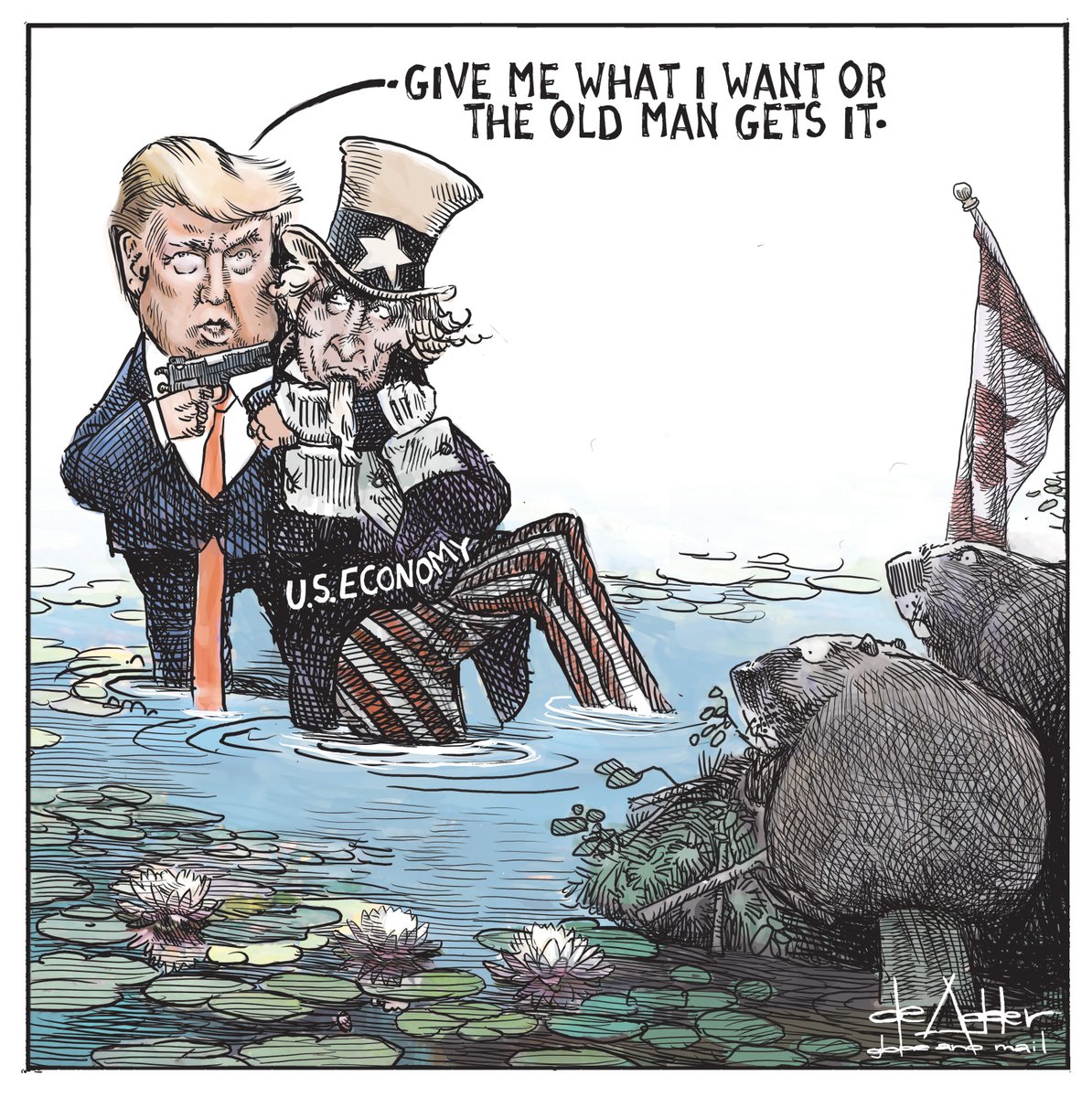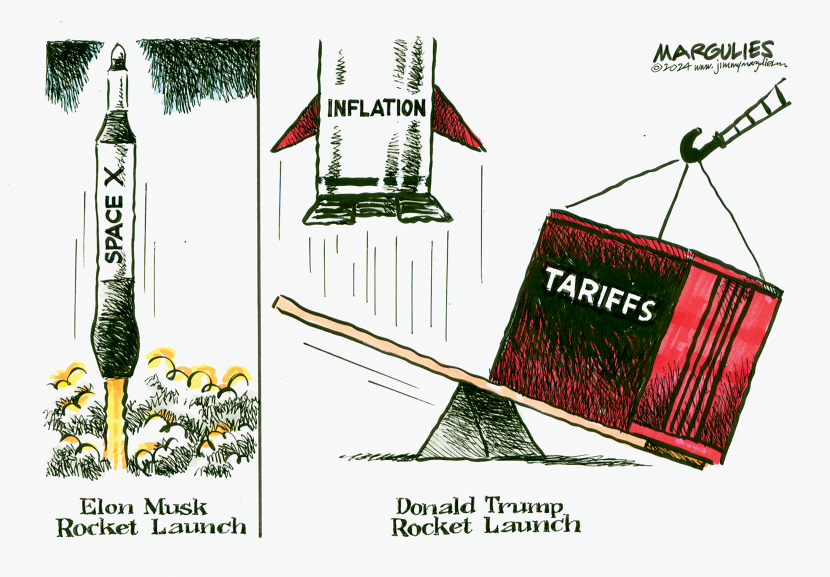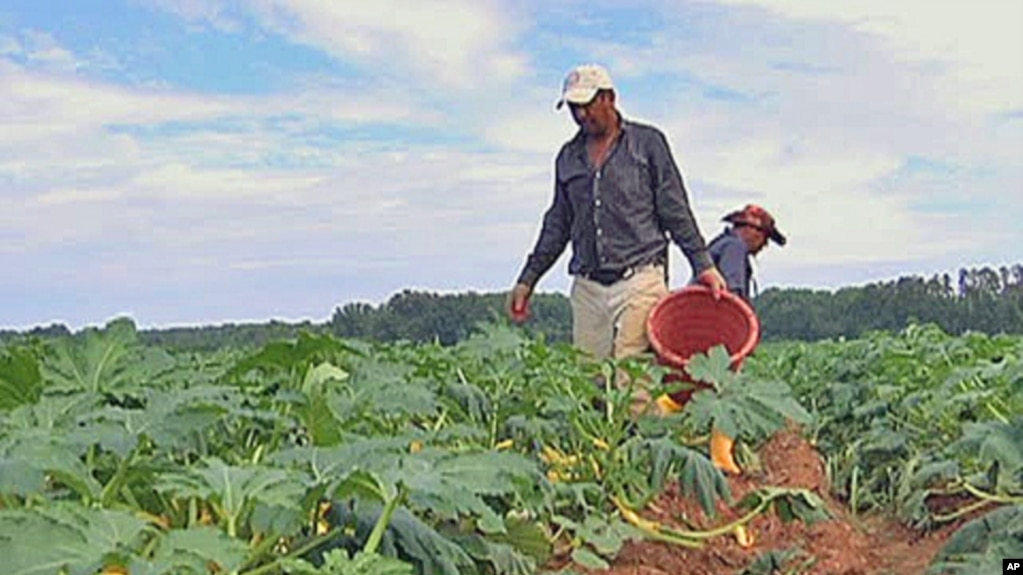 |
| Clothes, cars, food tariffs supposedly going into effect on Friday when King Donald's national sales tax takes effect |
Wednesday, July 30, 2025
Tariff tax you will pay on Friday
Friday, July 25, 2025
If the measure of success is losing billions of dollars, than chalk one up for King Donald
Trump deals another blow to American automakers
by Emily Singer, Daily Kos Staff
The so-called deal is another shit sandwich for Americans, especially U.S. car manufacturers.
That's because Japanese cars imported into the U.S. will face a 15% tariff rate—lower than the 25% tariff American car companies currently face for imported auto parts.
American automakers have already said Trump's tariffs have dealt a massive blow to their companies.
General Motors reported Tuesday that it lost $1 billion from April to June, attributing the losses to Trump's tariffs. And Stellantis, which manufactures American brands like Chrysler, Jeep, and Dodge, said it lost a whopping $2.7 billion in the first half of 2025 because of Trump's tariffs.
That 15% rate is less than the shocking 25% tariff
Trump had threatened against Japan if a deal wasn’t struck.
That’s why Japanese car stocks rose on Wednesday, with Toyota up about 13%.
“Toyota is up +8% on the news of a 15% tariff. Why? It's simple,” Spencer Hakimian, founder of the hedge fund Tolou Capital Management, wrote in a post on X.
“Ford, GM, Tesla, and all the other American manufacturers are
going to be paying 50% more for their steel, 50% more for their copper, 25%
more for their Canadian production, 25% more for their Mexican production, and
55% on their Chinese production. Toyota only has to pay 15% more and they're
done with all the shenanigans. Ford has to pay much more than that. A lot more
in fact."
“We've given a Japanese car company an advantage over
American car companies. All in hope of bringing auto jobs back to America,” he
added.
The American Automotive Policy Council—which represents
General Motors, Ford, and Stellantis—said on Wednesday that the Japanese trade agreement is
a "bad deal for U.S. industry and U.S. auto workers."
But Trump’s trade policy is not hurting just automakers.
Goldman Sachs on Tuesday said that U.S. economic growth will slow in 2025 because of Trump’s tariffs. The bank’s chief economist, Jan Hatzius, wrote in a memo to clients that the tariffs “will eat into real income, at a time when consumer spending trends already look shaky.”
Thursday, May 29, 2025
Nine of ten Americans reject RFK Jr.'s long-held stance on measles vaccine
One true thing RFK Jr. has said recently is don't take vaccine advice from him
A new Annenberg Poll shows that 87% of Americans say the benefit of childhood measles, mumps, and rubella (MMR) vaccination outweighs the risk, and 67% say they know that MMR vaccines don't cause autism.2025 may see the highest measles case count in the United
States since the disease was officially eliminated in 2000. With more
than 1,000
cases identified, and many more likely unreported, the virus is
taking hold in unvaccinated and under-vaccinated communities. The Annenberg
Poll surveyed 1,653 US adults from April 15 to 28, 2025, on measles knowledge
and attitudes toward vaccines.
Despite the number of current outbreaks (14) and illnesses
(1,024 confirmed), only 6 in 10 of adults polled (58%) said there are more
measles cases in the United States in 2025 than in the comparable period in
2024.
The poll picked up increased support for mandating MMR
vaccine for public school entrance. Eighty percent of those polled said they
supported requiring MMR vaccines for school entry, up from 73% in 2023. Only
18% of those polled said vaccines should be a matter of parental choice.
Wednesday, May 28, 2025
Tomato trade dispute between the US and Mexico is boiling over again – with 21% tariffs due in July
Trump launches new trade war over tomatoes
Although technically they’re a fruit, tomatoes are one of the most-consumed vegetables, according to the U.S. Department of Agriculture. Among the fresh produce the nation buys from foreign countries, tomatoes often rank first or second, behind avocados.
This trade is now jeopardized because the Trump administration has revived a three-decade-old effort to limit imports.
As economists who study global trade issues affecting agricultural commodities and processed food products, we have assessed the benefits of imported tomatoes and other products on consumers and businesses. Fresh tomato imports ensure year-round availability for consumers, contribute significantly to the U.S. economy by generating billions in sales and supporting thousands of jobs, and promote competitive pricing that benefits both consumers and businesses.
New import restrictions could put all that at risk because domestic production cannot satisfy national demand. For tomatoes, like steel and other products, efforts to reverse trade imbalances can decrease consumer satisfaction and potentially destroy more jobs and economic activity than they create.
Sunday, May 25, 2025
Economic Anxiety of Americans Surges Under Trump
The worst part is Trump's bizarre claims that everything is great, all evidence to the contrary
Julia Conley for Common Dreams
The Trump administration has made its desire for Americans
to expand their families well known, but a new survey out Monday details how a
growing number of people are postponing such major life decisions—including
having children, buying a home, or expanding their education—due to the
economic anxiety created by Donald Trump's policies.
Posted by Trump on May 12
The Harris poll was conducted on behalf of The Guardian between April 24-26, in the wake of the news that the White House was considering multiple ways to encourage people to have more children.
The proposals being floated by "pronatalist" advisers
include a $5,000 "baby bonus" that the administration would offer to
people when they have a new baby—which would cover less than half of the average annual cost of childcare in the United States.
Monday, March 31, 2025
Tariffs won’t just hit your wallet. They could also increase food waste.
Wednesday, on April 2, Trump plans to announce major new tariffs
Frida Garza, Staff Writer
Spring has sprung, and you can tell by looking at Dig’s online menu. The fast-casual chain known for its bountiful salads and bowls is promoting a new sandwich for the spring — the “avo smash,” wherein a hearty piece of chicken or tofu is embraced by a brioche bun, pesto aioli, and plenty of bright-green avocado.The lunch spot’s seasonal menus are planned at least three months in advance, said Andrew Torrens, Dig’s director of supply, meaning the avo smash has been in the works for a while. However, if the United States decides to escalate a global trade war next month, Dig will have to come up with a backup plan fast.
“If avocado prices explode, what’s our backup? How do we pivot?” said Torrens on a recent phone call.
Since his inauguration in January, Donald Trump has repeatedly threatened tariffs on imports from Mexico and Canada — creating confusion for restaurant owners, food distributors, grocers, and consumers who rely on the United States’ neighbor to the south for fruits and vegetables year-round.
On February 1, Trump signed an executive order levying a 25 percent tariff on goods from Canada and Mexico. However, he has twice pushed back the start date; earlier this month, he paused tariffs on most goods coming in from Mexico and Canada until April 2. What will actually happen on that date — which Trump has dubbed “Liberation Day” — is still largely unclear.
A tariff on goods from Mexico, the single largest supplier of horticultural imports to the U.S., would almost certainly mean higher prices at the grocery store. It could also, according to experts, increase food waste along the supply chain.
Dig sources most of its avocados from Mexico, where the warm climate is ideal for growing these fruits. This is common — in fact, about 90 percent of avocados consumed in the U.S. come from Mexico, according to the U.S. Department of Agriculture.
Wednesday, March 19, 2025
How Trump’s tariffs could mean rising costs for families, strain for states
A potential $110B economic hit
Get ready to pay more for avocados, maple syrup and – well – almost everything.
The U.S. officially imposed new 25% tariffs on Canada and Mexico on March 4, 2025, following through on a long-delayed pledge from President Donald Trump. American consumers and businesses are now bracing for higher costs and potential supply disruptions.
Although tariffs, or taxes on imports, are a pillar of Trump’s economic policy, the move still surprised many observers, since Mexico and Canada are among the U.S.’s traditional allies and top trading partners. The administration further rattled global supply chains by doubling existing tariffs on Chinese goods to 20%.
As an economist who studies global trade, I wanted to know how the 25% import duties on Canada and Mexico would affect different parts of the country. So I conducted a state-by-state impact analysis.
What I found is alarming: The U.S. economy could face an annual loss of US$109.23 billion. This shortfall would mean rising costs of everyday goods for American families and would disproportionately affect certain states. My analysis focused exclusively on the effects of U.S. tariffs, so it didn’t take retaliation from Canada or Mexico into account. If it did, the losses would be even greater.
Unequal burdens for states, higher prices for families
Imagine your grocery bill surging by 17.5% to 25%, car parts costing hundreds of dollars more, and your favorite local restaurant raising prices as imported ingredients become unaffordable. Because tariffs drive up consumer prices, these scenarios, or others like them, will soon become reality across the U.S.
But not all Americans will be affected equally, I found. States that are deeply connected to North American supply chains will suffer the biggest economic blows. Texas, with its strong trade ties to Mexico and key role in energy, would lose $15.3 billion. California’s diverse economy would take a $10.2 billion hit. Michigan, heavily reliant on auto manufacturing, would face a $6.2 billion blow – over 1% of its gross domestic product.
Saturday, March 15, 2025
King Donald Demands Journalists Use Language He Wants or Face Punishment
Ominous Move to Strip Americans of First Amendment Rights
Donald Trump’s oft-stated hostility to journalism, and his dictatorial efforts to force journalists to heel, took a disturbing turn in a Washington courtroom on Monday, February 24. A turn detrimental to the health of our First Amendment rights.
A federal judge appointed by Donald Trump indicated that he
would allow the Trump administration to bar from the White House press room the
nonprofit Associate Press, one of the country’s largest news organizations.
The AP was blocked because it does not use language that
Donald Trump demands that all Americans use or risk government punishment,
calling the Gulf of Mexico the Gulf of America.
This could be seen as a petty dispute, but I see it as a
window into Trump’s continuing efforts to consolidate power as our de
facto dictator, which in large part requires bringing the press to
heel so Americans learn only the official Trump version of events, not some
pesky independent reporting.
Telling journalists what language to use contradicts
the free speech and free press rights all Americans enjoy under our
Constitution’s First Amendment. But Trump knows that this will have a
visceral impact only on the minority of Americans who understand, care about,
and will fight for our Constitutional rights.
Most Go Along
 The social experiments by Stanley
Milgram and Philip Zimbardo on inflicting pain and
running a faux prison showed that only one in six people will resist or reject
orders to harm others. Zimbardo, a Stanford University professor whose
experiment I wrote about at the time, insisted to his dying day that he had no
interest in those who wouldn’t go along, only those who complied.
The social experiments by Stanley
Milgram and Philip Zimbardo on inflicting pain and
running a faux prison showed that only one in six people will resist or reject
orders to harm others. Zimbardo, a Stanford University professor whose
experiment I wrote about at the time, insisted to his dying day that he had no
interest in those who wouldn’t go along, only those who complied.
Donald has a long history of showing his utter lack of
regard for our Constitution when he finds it inconvenient. In this his
obsequiously loyal ally is Vice President JD Vance, a Yale-educated lawyer who
knows better, but favors demonstrating his fealty to Trump above his oath of
office to protect and defend our constitution against all enemies foreign and
domestic.
Now Trump appears to have another ally in U.S. District
Judge Trevor McFadden, a 2017 Trump appointee.
In that Monday’s hearing, judge McFadden declined to direct
the Trump administration to let Associated Press reporters into the White House
press room.
“I can’t say the AP has shown a likelihood of success here,”
Judge McFadden said.
McFadden called the AP ban “problematic” and advised the
government that “case law in this circuit is uniformly unhelpful to the White
House.” He then ordered a hearing in March. without any relief for AP until
then.
The judge also critiqued AP for waiting five days to file
its case, saying it showed that AP didn’t consider this an emergency.
It’s hard to imagine a clearer First Amendment violation.
Trump is punishing the Associated Press for exercising a Constitutional right,
namely, to choose the words it thinks are proper and appropriate in news
articles. That Judge McFadden is trying to weasel out of his duty to uphold
Constitutional rights is another sign of obeisance to our dictator’s demands.
Trump made clear last week that unless AP writes the news as
he demands, using his fictional Gulf of America in relevant articles, it will
not be reinstated.
“We’re going to keep them out until such time that they
agree it’s the Gulf of America,” Trump said.
Thursday, March 6, 2025
10 Reasons for Modest Optimism in the Fight Against the Trump-Vance-Musk Regime
Don't lose hope
Robert Reich for Inequality Media
If you are experiencing rage and despair about what is happening in America and the world right now because of the Trump-Vance-Musk regime, you are hardly alone. A groundswell of opposition is growing—not as loud and boisterous as the resistance to Tump 1.0, but just as, if not more, committed to ending the scourge.
Here’s a partial summary—10 reasons for modest optimism.
1. Boycotts Are Taking Hold
 Americans are changing shopping habits in a backlash against
corporations that have shifted their public policies to align with Trump.
Americans are changing shopping habits in a backlash against
corporations that have shifted their public policies to align with Trump.
Millions are pledging to halt discretionary spending for 24
hours on February 28 in protest against major retailers—chiefly Amazon,
Walmart, and Best Buy—for scaling back diversity, equity, and inclusion
initiatives in response to President Donald
Trump.
Four out of 10 Americans have already shifted their spending over the last few months to be more consistent with their moral views, according to the Harris poll. (Far more Democrats—50%—are changing their spending habits compared with Republicans—41%.)
Calls to boycott Tesla apparently are having an effect.
After a disappointing 2024, Tesla sales declined
further in January. In California, a key market for Tesla, nearly 12% fewer Teslas
were registered in January 2025 than in January 2024. An analysis by Electrek points
to even more trouble for Tesla in Europe, where Tesla sales have dropped in
every market.
X users are shifting over to Bluesky at a rapid rate, even
as Musk adds more advertisers to his ongoing lawsuit against those that have
justifiably boycotted X after he turned it into a cesspool of lies and hate
(this week, he added Lego, Nestle, Tyson Foods, and Shell).
2. International Resistance Is Rising
Canada has helped lead the way: A grassroots boycott of
American products and tourism is underway there. Prime Minister Justin Trudeau
has in effect become a “wartime prime minister” as he stands up to Trump’s
bullying.
Jean Chrétien, who served as prime minister of Canada from
1993 to 2003, is urging Canada to join with leaders in Denmark, Panama, and
Mexico, as well as with European Commission President Ursula von der Leyen, to
fight back against Trump’s threats.
Mexico’s President Claudia Sheinbaum is standing up to
Trump. She has defended not just Mexico but also the sovereignty of Latin
American countries Trump has threatened and insulted.
In the wake of JD Vance’s offensive speech at the Munich
security conference last week, European democracies are standing
together—condemning his speech and making it clear they will support Ukraine
and never capitulate to Russian President Vladimir Putin, as Trump has done.
Saturday, February 22, 2025
Inflation is heating up again, putting pressure on Trump to cool it on tariffs
Predictably, terrible policies yield terrible results
The consumer price index, which measures the change in prices paid by consumers for a representative basket of goods and services, rose unexpectedly from December to January by 0.5%. It means consumers are paying around 3% more on item prices than they were a year ago.
Economists had been expecting the pace of inflation to slow in January.
The news isn’t good for anyone concerned. It means inflation remains above the Federal Reserve’s long-run target of 2% – making it harder for the central bank to cut rates at its next meeting on March 19. At its last meeting, the rate-setting Federal Open Market Committee kept its benchmark federal funds rate unchanged at a range of 4.25-4.50%.
Following the release of the latest inflation data, markets have a stronger conviction that the Fed will again hold rates steady when it meets in March.
It also means more pain for consumers. Higher interest rates set by the Fed play a large role in determining rates for mortgages, credit cards and auto loans. If January’s rate of inflation were to continue throughout 2025, consumers would see a painful 6.2% annualized inflation rate.
And although it would be churlish to link the latest jump in inflation to an administration just weeks old, it does put into focus the current slate of Trump economic policies. Economists have long warned that imposing tariffs on imports and cutting taxes does little to curb inflation – rather, they may contribute to faster price increases.
Monday, February 17, 2025
Trump's Old-School Brand of Imperialism
MAGA-Fest Destiny
William Astore for the TomDispatch
A few years ago, I came across an old book at an estate sale. Its title caught my eye: “Our New Possessions.” Its cover featured the Statue of Liberty against stylized stars and stripes.
What were those “new possessions”? The cover made it quite clear: Cuba, Hawaii, the Philippines, and Puerto Rico. The subtitle made it even clearer: “A graphic account, descriptive and historical, of the tropic islands of the sea which have fallen under our sway, their cities, peoples, and commerce, natural resources and the opportunities they offer to Americans.”
What a mouthful! I’m still impressed
with the notion that “tropical” peoples falling “under our sway” offered real
Americans amazing opportunities, as did our (whoops — I meant their)
lands. Consider that Manifest Destiny at its boldest, imperialism
unapologetically being celebrated as a new basis for burgeoning American
greatness.
The year that imperial celebration was published — 1898 —
won’t surprise students of U.S. history. America had just won its splendid
little imperial war with Spain, an old empire very much in the “decline and
fall” stage of a rich, long, and rapacious history. And just then red-blooded
Americans like “Rough Rider” Teddy
Roosevelt were emerging as the inheritors of the conquistador tradition of an
often murderously swashbuckling Spanish Empire.
Of course, freedom-loving Americans were supposed to know better than to follow in the tradition of “old world” imperial exploitation. Nevertheless, cheerleaders and mentors like storyteller Rudyard Kipling were then urging Americans to embrace Europe’s civilizing mission, to take up “the white man’s burden,” to spread enlightenment and civilization to the benighted darker-skinned peoples of the tropics.
Yet to cite just one example, U.S. troops dispatched to the
Philippines on their “civilizing” mission quickly resorted to widespread murder and torture,
methods of “pacification” that might even have made Spanish inquisitors blush.
That grim reality wasn’t lost on Mark Twain and
other critics who spoke out against imperialism, American-style, with its
murderous suppression of Filipino “guerrillas” and bottomless hypocrisy about
its “civilizing” motives.
After his exposure to “enlightened” all-American
empire-building, retired Major General Smedley Butler, twice awarded the Medal
of Honor, would bluntly write in the 1930s of war as a “racket” and insist
his long career as a Marine had been spent largely in the service of “gangster” capitalism.
Now there was a plain-speaking American hero.
And speaking of plain-speaking, or perhaps plain-boasting, I suggest that we think of Donald Trump as America’s retro president from 1898. Isn’t it time, America, to reach for our destiny once again? Isn’t it time for more tropical (and Arctic) peoples to be put “under our sway”? Greenland! Canada! The Panama Canal!
These and other regions of the globe offer Donald Trump’s America so
many “opportunities.” And if we can’t occupy an area like the Gulf of Mexico,
the least we can do is rebrand it the Gulf of America! A
lexigraphic “mission accomplished” moment bought with no casualties, which sure
beats the calamitous wars of George W. Bush and Barack Obama in this century!
Now, here’s what I appreciate about Trump: the transparent nature of his greed. He doesn’t shroud American imperialism in happy talk. He says it just like they did in 1898. It’s about resources and profits.
As the dedication page to that old book from 1898 put it: “To all Americans who go a-pioneering in our new possessions and to the people who are there before them.” Oh, and pay no attention to that “before” caveat.
We Americans clearly
came first then and, at least to Donald Trump, come first now, and — yes! — we
come to rule. The world is our possession and our beneficence will certainly
serve the peoples who were there before us in Greenland or anywhere else (the “hellhole” of Gaza included),
even if we have to torture or kill them in the process of winning their hearts
and minds.
Sunday, February 16, 2025
Yes, Trump is a malignant narcissist and sadist with an insatiable lust for power who gets pleasure out of making others squirm. But there’s something else.
Trump's Trade War, Authoritarian Power, and the Oligarchs
Robert Reich in Inequality Media

Hours before the Canadian tariffs went into effect, Trump
was asked if there was anything Canada could do to stop them.
“We’re not looking for a concession,” Trump said, speaking to reporters in the
Oval Office on Friday afternoon. “We’ll just see what happens, we’ll see what
happens.”
The real reason Trump has raised tariffs on Canada and
Mexico is to show the world that he’s willing to harm (smaller) economies even
at the cost of harming America’s (very large) economy.
The point is the show — so the world
knows it’s dealing with someone who’s willing to mete out big punishments.
Trump increases his power by demonstrating he has the power
and is willing to use it.
The same with deporting, say, Colombians or Brazilians in
military planes, handcuffed and shackled. If, say, Colombia or Brazil complains
about their treatment, so much the better. Trump says, without any basis in
fact, that they’re criminals. Then he threatens tariffs. If Colombia backs down,
Trump has once again demonstrated his power.
Why did Trump stop foreign aid? Not because it’s wasteful.
In fact, it helps stabilize the world and reduces the spread of communicable
diseases. The real reason Trump stopped foreign aid is he wants to show
he can.
Why is he disregarding (or threatening to tear up) treaties
and agreements (the Paris Agreement, NATO, whatever)? Not because such treaties
and agreements are bad for America. To the contrary, they’re in America’s best
interest.
The real reason Trump is tearing up treaties is they tie
Trump’s hands and thereby limit his discretion to mete out punishments and
rewards.
Saturday, February 15, 2025
Soften the blow by stocking up on these tariff-sensitive items
Stockpile but don't go nuts
By Will Collette
You’ve heard a lot lately about Donald Trump’s plan to impose “tariffs” (also called “duties”) on imported goods. We still don’t know if he will impose these tariffs across the board as he said he would during his campaign. Or whether he will target them to gain bargaining power, punish countries for some real or imagined offense or just pressure them, as he threatened to do against Canada to force it to become the US’s 51st state.
Tariffs are paid for by you, not the targeted country.
US importers of foreign goods pay the actual tariff and then
pass that cost onto you. Trump’s tariff blitz on Canada and Mexico, now
postponed, will have a huge impact on food and construction materials. Because
of low margins in those industries, the tariffs will be passed on almost
entirely on YOU.
Trump has NOT postponed the 10% tariff on China and, given
how so much of what Americans use comes from China, that means we will be
seeing what is basically a 10% National Sales Tax on all those goods. China is
a major supplier of medications so there may be a big spike in the cost of
prescriptions and over-the-counter meds.
But food is probably the most sensitive item to tariff-driven
price hikes because of very low mark-ups at markets and Canada and Mexico
supply much of what we eat. Canada is a huge source of America’s grains and
cereals. We get the majority of our fresh produce from Mexico. You WILL pay a
25% Trump Sales Tax on food if he decides to go ahead with his tariffs.
Economists are already saying that Trump's tariffs, if imposed as he promised, would amount to the largest tax increase in US history with the brunt of it falling on low income and middle-class families.
A couple of rarely discussed effects will also hit you in
the pocketbook. One is supply-chain disruption as these dramatic tax hikes create
chaos in the marketplace. Expect shortages, especially for meats, that will
also crank up prices. Further, since the price of Canadian and Mexican food
products will go up drastically, US food producers will see these tariffs as an
invitation to boost their prices and profits.
Further, Trump’s deportation binge will remove many of the workers who grow and harvest American fields and also work in the packing and processing plants that prepare the food to go into the food chain. This will cause food rotting in the fields, shortages and price hikes.
You can do some stocking up to perhaps cushion some of the
blow.
Using a freezer and dry storage, you can stock up on meats
and seafood, nuts, coffee, chocolate, fruits and vegetables.
More than half of our red meats come from Canada. Vietnam and Mexico supply most of our nuts. Latin America and Canada supply most of our beans. We have virtually no domestic production of coffee or the cacao beans that make chocolate, although climate change may make it possible to grow coffee and cacao on the US mainland.
A small amount of our coffee comes from Hawaii (Kona coffee) and a small growing region in Puerto Rico, but that’s only a tiny fraction of what Americans need. Cafe Bustelo is partly comprised of Puerto Rico beans but mostly coffee from Columbia and Guatemala.
I’ve been accumulating a personal stockpile of coffee in the freezer
for added freshness.
Dietitians say that canned or frozen fruits and vegetables
are almost as nutritious as fresh, although there’s nothing like fresh for
taste. And say goodbye to salads.
During the pandemic, we saw shortages and the beginning of
the on-going food cost inflation. Some people bought a lot of flour but many
lost their investment because of improper storage and deterioration when flour
is stored at room temperature.
In addition to being subject to Trump's ill-advised economic practices, chicken and egg prices are sky-rocketing due to widespread bird (or avian) flu. If you are thinking of raising your own chickens, be aware that they are as susceptible to getting bird flu from wild birds as commercially grown chickens.
There is no treatment or vaccine for bird flu. Standard practice has been to destroy entire flocks even if only one bird is infected. I don't expect the Trump regime to be any more effective at dealing with avian flu than they were in dealing with COVID. Heaven forbid they should launch a drive to find a vaccine.
I do expect Trump to follow his COVID gameplan of denying there is a problem, promoting phony remedies, making up some conspiracy theories, covering up the science and statistics on the outbreak and generally let the disease take its toll. He is already gutting and censoring our country's tools to fight this and other diseases.
On that cheerful note, here’s a handy list of egg substitutes to get you started.
You should look at your household’s needs and do the
research to see the best way to safely store the food.
Of course you can consider growing your own, though climate
conditions limit the practical effect of an anticipated new wave of Victory
Gardens.
This is what 49.9% of the voters voted for, despite very specific warnings. If you're angry about inflation, blame MAGA.
Thursday, February 13, 2025
Even Those Who Believe Tariffs Are Useful Think Trump's Trade War Makes 'Zero Sense'
The "largest tax increase... that has ever been imposed" on working-class families.

"Tariffs are a powerful, effective tool to deliver
certain goals. But Trump's Canada/China/Mexico tariffs make zero sense. And
even undermine tariffs' legit uses," Lori Wallach, director of the Rethink
Trade program at the American Economic Liberties Project, wrote on social media late Sunday,
expressing agreement with United Auto Workers president Shawn Fain.
Fain said in a statement that the UAW "supports aggressive tariff action to protect American manufacturing jobs as a good first step to undoing decades of anti-worker trade policy," pointing specifically to the North American Free Trade Agreement (NAFTA) and its successor agreement that Trump negotiated during his first White House term.
The union does not, however, "support using factory
workers as pawns in a fight over immigration or drug policy," Fain
continued. "The national emergency we face is not about drugs or
immigration, but about a working class that has fallen behind for generations
while corporate America exploits workers abroad and consumers at home for
massive Wall Street paydays."
The officially stated purpose for
Trump's 25% tariffs on Canadian and Mexican imports and 10% tariffs on Chinese
imports is to confront what the White House described as the
"extraordinary threat" posed by the movement of migrants and drugs
across the southern and northern U.S. borders.
Who are immigrants to the US, where do they come from and where do they live?
The actual facts are very different than Trump's narrative
Jennifer Van Hook, Penn State
Undocumented immigration is a key issue in American politics, but it can be hard to nail down the basic facts about who these immigrants are, where they live and how their numbers have changed in the past few decades.
I study the demographics of the U.S. immigrant population and have seen how the data has changed over time. Here are some basics to set the stage as Donald Trump begins his second term in office vowing to crack down hard on immigrants, including by conducting mass deportations.
Immigration status
My analysis of the Census Bureau’s 2023 American Community Survey data, in collaboration with the Migration Policy Institute, a nonpartisan nonprofit immigration research group, finds that as of the middle of 2023, approximately 51 million foreign-born people lived in the United States.
Most immigrants are in the U.S. legally. About 49% have become U.S. citizens by a process known as naturalization. Another 19% hold lawful permanent resident status and are eligible to become U.S. citizens through naturalization. Still another 5% are in the country on temporary visas, like those for international students, diplomats and their families, and seasonal or temporary workers.
The remaining 27% – around 13.7 million people – are outside those categories and therefore generally considered to be undocumented.
Monday, February 3, 2025
Tuesday, January 28, 2025
Yes, Trump can rename the Gulf of Mexico – just not for everyone.
There's a long-recognized international system for naming places
Among the blizzard of executive orders issued by Donald Trump on his first day back in the Oval Office was one titled Restoring Names that Honor American Greatness. It unilaterally renamed “the area formerly known as the Gulf of Mexico” as the “Gulf of America”.
The order was justified by this maritime space having long been an “integral asset” to the United States, with its “bountiful geology” yielding around 14% of US crude oil production, “vibrant American fisheries”, and it being “a favorite destination of American tourism”.
The gulf was also characterized as “an indelible part of America” that would continue to play “a pivotal role in shaping America’s future and the global economy”.
But while it’s undoubtedly important to the US, this part of the Atlantic Ocean washes against other countries, too. So, can the president really rename it? Sure! At least as far as the US is concerned, anyway.
Sunday, January 26, 2025
Blake Filippi tweets up a storm
He's still strange
By Will Collette
Charlestown's former state representative Blake "Flip" Filippi has been relatively quiet since he decided to forego a reelection bid so he could pursue an obscure lawsuit on an arcane procedural matter. He did emerge briefing for a flurry of tweets calling for the killing of local seals because, he claimed, they were luring great white sharks to our coastal waters.
But since Donald Trump's election win, Flip has come out of his shell to begin posting again on Twitter/X with some pretty bonkers stuff such as calling for the Mexican drug cartels to be declared "terrorist organizations" presumably to allow Trump to carry out his threatened air strikes in Mexico.
He also dumped some smarm on Joe Biden for protecting his family from MAGA attacks through pre-emptive pardons.
But this one really caught my eye:
First, Flip, if you're going to attack a national hero like Dr. Anthony Fauci, at least spell his name right - that's "Fauci" not "Faucci."

.webp)

.webp)















